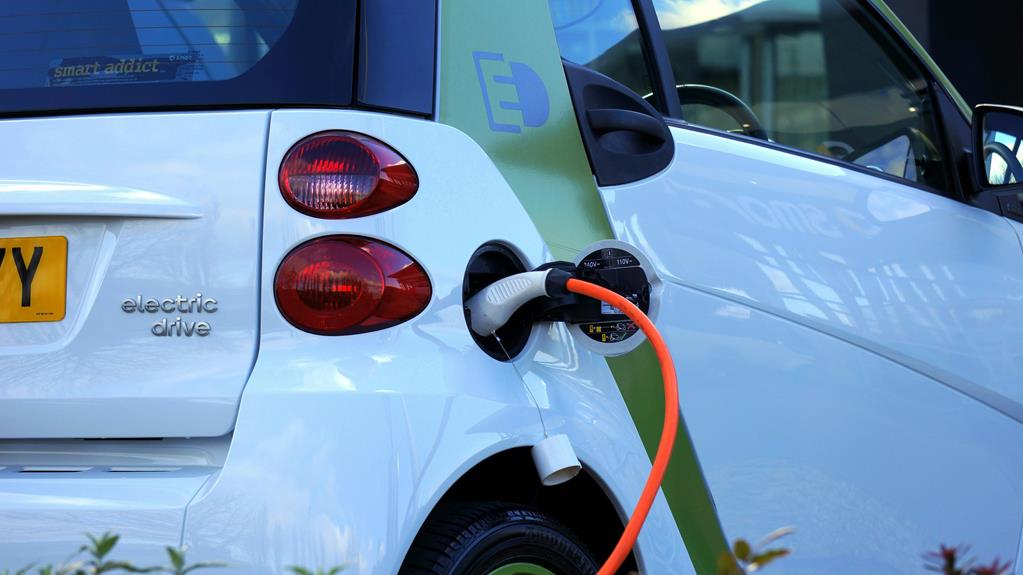
If you're wondering about the most common reasons for car battery failure, extreme weather conditions like freezing temperatures and excessive heat can wear down the battery. The age of the battery also plays a significant role, as over time, it loses efficiency and power. Neglecting maintenance, such as not checking electrolyte levels or allowing corrosion to build up, can shorten the battery's lifespan. Electrical system issues, such as corroded terminals or a faulty alternator, can also lead to battery troubles. Understanding these key causes can help you avoid unexpected battery failures.
Extreme Weather Conditions
Extreme weather conditions can significantly impact the health and performance of your car battery. When temperatures drop below freezing, the chemical reactions within the battery slow down, reducing its overall capacity and making it harder to start your car. On the other hand, extreme heat can cause the water inside the battery to evaporate, leading to potentially irreversible damage and shortening the battery's lifespan.
In cold weather, your battery may struggle to provide enough power to start the engine, leaving you stranded. It's essential to keep your battery properly charged and maintained, especially during the winter months. Extreme heat can also pose a threat to your battery, causing it to overheat and potentially leak harmful chemicals.
To protect your battery from the harsh effects of extreme weather, consider parking your car in a garage or shaded area during hot days and using a battery insulation kit in cold climates. Regularly inspecting your battery for signs of damage or corrosion can also help prevent unexpected failures due to weather conditions.
Old Age of the Battery
As a car battery ages, its ability to hold a charge and deliver sufficient power diminishes, increasing the likelihood of failure. Over time, the chemical reactions inside the battery that produce electricity become less efficient. This leads to a gradual decline in the battery's overall performance, making it harder for the battery to start your car reliably.
As the battery ages, its internal components also deteriorate. The plates inside the battery can become coated with sulfate deposits, reducing their effectiveness in storing and releasing energy. This buildup can hinder the battery's ability to deliver power to the engine when needed, especially in cold weather conditions.
Additionally, the connections within the battery can corrode over time, leading to increased resistance and decreased conductivity. This corrosion can prevent the battery from charging properly, further accelerating its decline.
To avoid being stranded with a dead battery, it's essential to monitor the age of your battery and replace it proactively before it fails unexpectedly.
Lack of Maintenance
If you neglect regular maintenance, your car battery's lifespan and performance can be significantly impacted. Regular maintenance tasks like checking for corrosion on the terminals, ensuring they're tightly connected, and cleaning off any buildup are crucial. Ignoring these simple steps can lead to poor electrical connections, which in turn can strain the battery and reduce its efficiency.
Additionally, failure to monitor the electrolyte levels in the battery can also result in decreased performance. Electrolyte levels should be checked regularly and topped up with distilled water as needed to prevent the plates from being exposed and potentially damaged.
Furthermore, extreme temperatures can affect your battery if proper care isn't taken. High temperatures can cause water to evaporate more quickly, while cold temperatures can reduce the battery's ability to provide power. Regularly checking and maintaining your battery's temperature can help prevent premature failure due to extreme weather conditions.
Electrical System Issues
Neglecting proper maintenance can lead to electrical system issues with your car battery, impacting its performance and lifespan. One common electrical problem is corroded or loose battery terminals. When these terminals are dirty or not securely connected, it can hinder the flow of electricity between the battery and the vehicle, leading to starting difficulties.
Additionally, a faulty alternator can cause strain on the battery. The alternator is responsible for recharging the battery while the car is running; if it malfunctions, the battery may not receive adequate charge, resulting in a drained battery.
Another electrical issue is parasitic drains, where certain components draw power from the battery even when the car is turned off. This continuous power drain can significantly reduce the battery's life.
To prevent these electrical system problems, ensure that battery terminals are clean and tight, have the alternator checked regularly, and investigate any unusual power drains promptly.
Conclusion
So, in conclusion, the most common causes of car battery failure are:
- Extreme weather conditions
- Old age of the battery
- Lack of maintenance
- Electrical system issues
It's important to regularly check your battery and take preventive measures to avoid unexpected breakdowns.
Remember, a little maintenance can go a long way in ensuring your car starts up when you need it to.
Stay proactive and keep your battery in good shape for smooth driving experiences.




